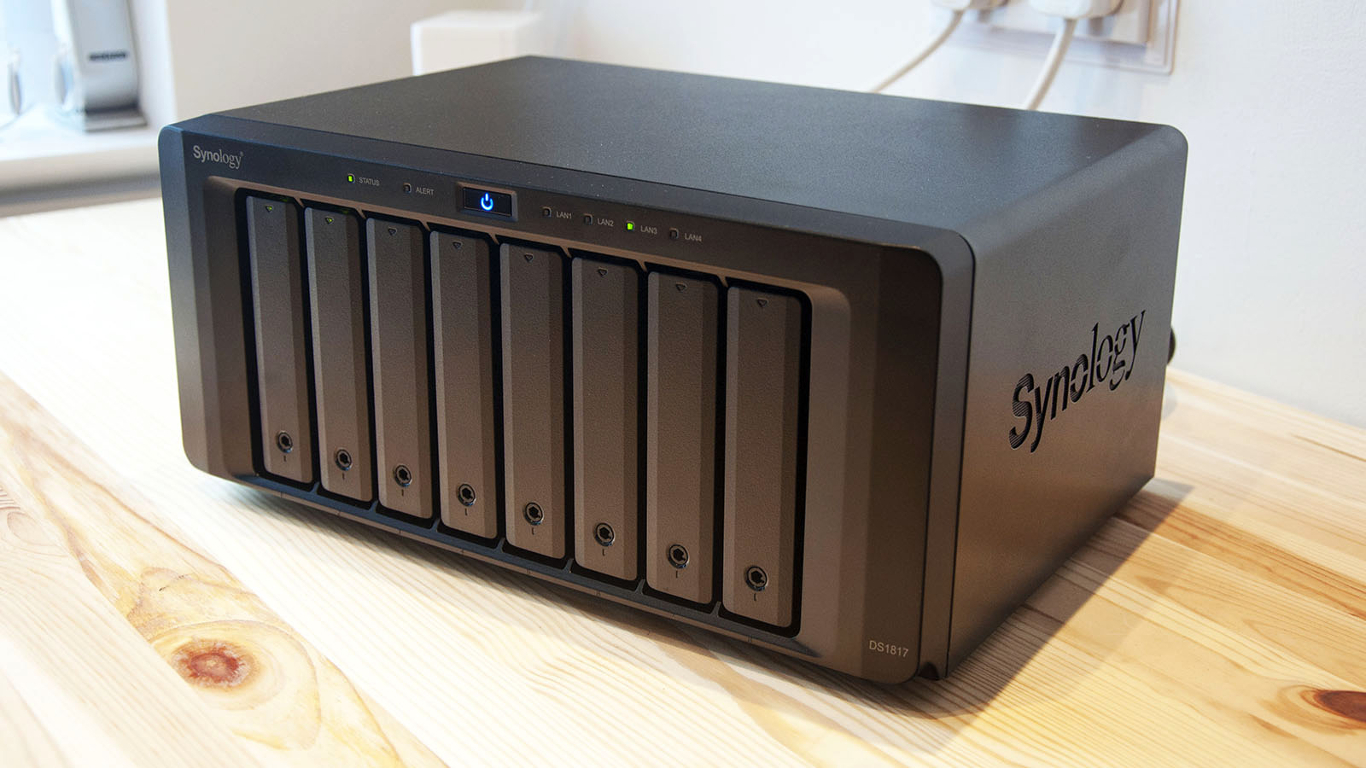Why you can trust TechRadar
We liked
This NAS is easy to configure, deploy and use. The DS1817 embodies everything that’s right about the Synology ethos, which addresses business customer needs in flexible server technologies.
The inclusion of 10GbE ports with failover allows the huge bandwidth available in an eight drive array to be shared amongst a decent number of gigabit switch connected users, without creating a significant bandwidth bottleneck.
But above all else, the DS817 offers a very wide level of scalability that could start with 1GbE networking and a handful of drives, and extend to linked 10GbE and potentially 180TB of accessible storage.
The choice to use the 10GbE option directly from a single computer without a switch is also an attractive proposition. It’s perfect for those who want to use the DS1817 as an alternative to Thunderbolt external storage, with the added bonus of wider network access.
We disliked
Synology needs to stop using eSATA to connect expansion boxes, as it bottlenecks the performance of drives on that side of the array. Using USB 3.1 or Thunderbolt 2 would be the obvious alternatives to increase available bandwidth to external storage.
A possible weakness of the Alpine AL-314 32-bit CPU is that it can’t match the iSCSI IOPS of the 64-bit Intel Atom C2538 in the DS1817+, even if it is quicker at most other things.
The pricing of this NAS, with a tag which almost matches the DS1817+, might confuse many customers unless they’re committed to 10GbE networking from the outset.
Final verdict
Synology has successfully occupied the high ground for affordable NAS solutions, and the DS1817 just reinforces that position. It’s ideal for a small business that wants an easy to deploy and maintain solution that can be rapidly expanded should data storage requirements blossom. And with 10GbE pre-installed, it provides the first rung on the ladder to the next level of network performance, when the customer is ready to take that step.
Its inclusion should put pressure on switch makers to deliver more affordable 10GbE solutions, as the market is ready to embrace the tech.
Being ARM-based, this is never going to compete with the Xeon-based servers, but for those who want reliable file serving with lots of capacity, or to meet a specific need, there is plenty here to recommend.
Mark is an expert on 3D printers, drones and phones. He also covers storage, including SSDs, NAS drives and portable hard drives. He started writing in 1986 and has contributed to MicroMart, PC Format, 3D World, among others.

